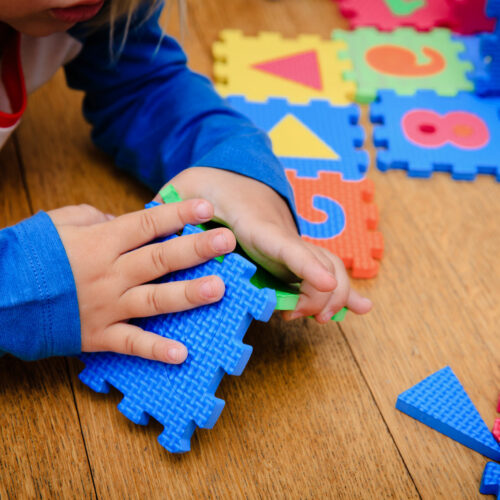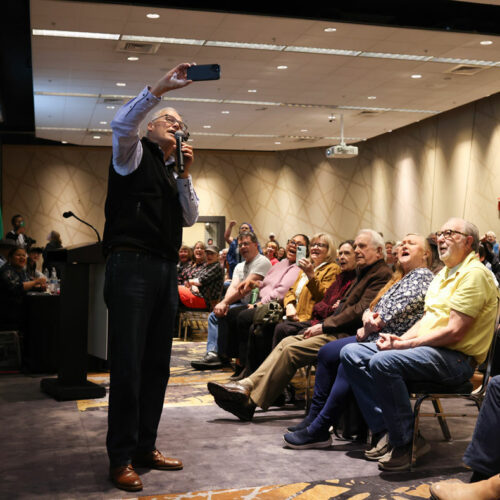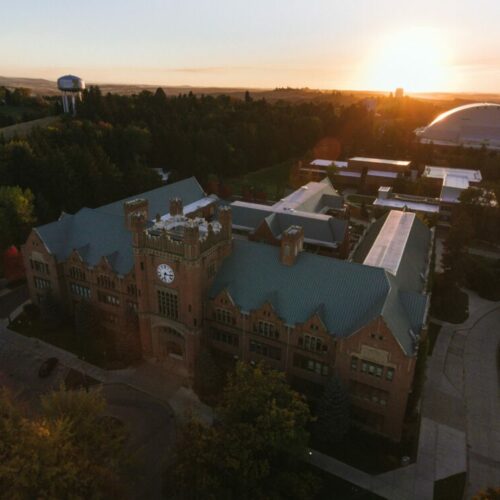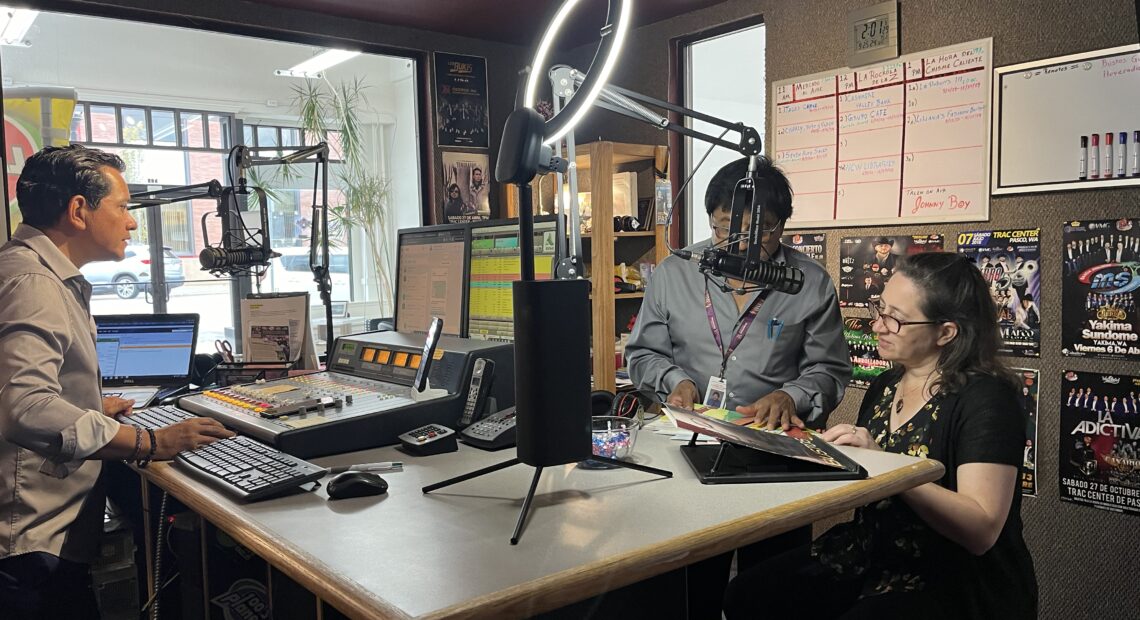
Local radio show spotlights bilingual education in conversation with state leader
Listen
(Runtime 1:09)
Read
Every Wednesday at 2 p.m., Alfonso Lopez, the director of Hispanic and Latino relations for the Wenatchee School District, goes live on air to talk about education.
This week, Lopez sat down with Kristin Percy Calaff, the executive director of multilingual and migrant education from the Office of Superintendent of Public Instruction, to discuss the benefits of being bilingual.
Lopez does the show with radio host Juan J. Anaya, also known as “Johnny Boy,” on La Zeta 92.3 and 92.9 FM. They do a weekly Spanish-language segment to inform the local Latino community on developments in education at the local, state and federal level. This week’s episode focused on the benefits of being bilingual.
A dual language model is a form of instruction where students learn English and another language at the same time. The goal of dual language education is to help students speak and become literate in both languages. This type of instruction also supports students learn about different cultures.
According to OSPI, dual language programs are the best educational model for both multilingual learners and native English speakers.
“Our goal is to ensure that all children achieve high levels of English proficiency while promoting bilingual programs in our schools,” Calaff said. “We know dual-language programs consistently deliver the best outcomes for students.”
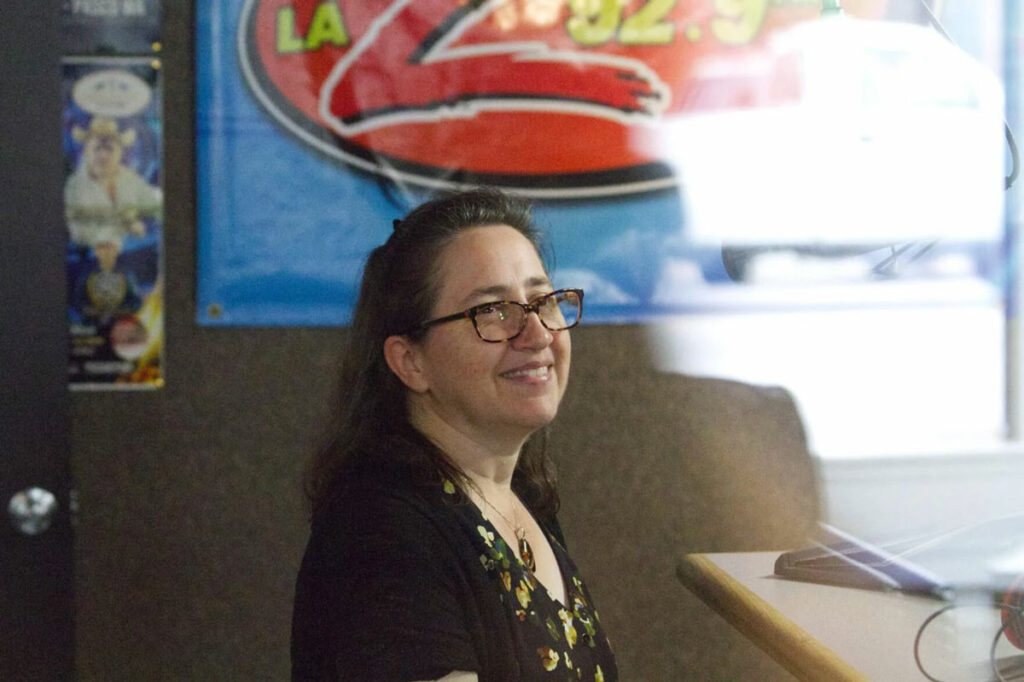
Calaff’s visit to north central Washington included stops in Yakima and in Sunnyside, where she met with schools focused on bilingual, migrant and dual language education. She then traveled to Wenatchee for her live radio interview with Lopez after she met with local education leaders. On Thursday, she visited Lewis and Clark Elementary School, a dual language school in the Wenatchee area.
She shared with Lopez the state has grants for schools to implement dual language programs in their school districts. This includes research grants for schools to investigate if the learning model is a good fit for their students and staff. In the Wenatchee and Eastmont school districts, researchers are studying the impacts dual language programs could have on their students.
On the radio, Lopez and Calaff discussed common misconceptions about bilingualism. Calaff said that it is important to learn a second language early.
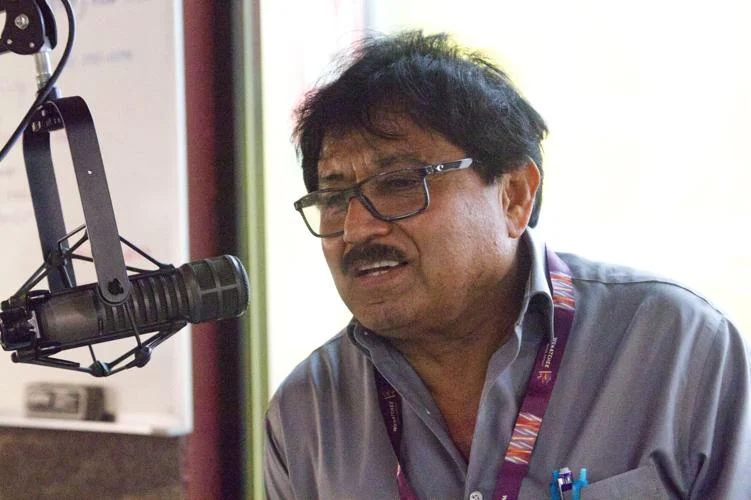
“Learning a second language makes it easier for students to pick up additional languages,” Calaff said. “It’s crucial for students to maintain their native language alongside English. When a child starts kindergarten, they’ve only acquired about half of their native language. If they stop learning it, they won’t fully master it, which can impact their ability to learn other languages.”
In both Chelan and Douglas County, many students speak a second language at home. In the 2023-2024 school year, 1,675 students in the Wenatchee School District were English Language Learners, while the Eastmont School District reported 1,219 ELL students according to OSPI. Both districts have a student population that is more than 50% Hispanic or Latino.
Calaff said it is important to be bilingual, especially if you grew up speaking a second language. It helps to maintain cultural connections and history.
There is currently a growing need for bilingual employees. According to a study by the International Center for Language Studies, nine out of 10 employers rely on U.S.-based employees with language skills other than English.
“In this economy, it is very important to know a different language,” Calaff said. “We want to see a state where everyone speaks more than one language. What is important is that by the end of their education, students leave being bilingual and biliterate.”
Lopez and Calaff said that knowing a second language is an asset.
In some homes, parents don’t want their children to speak their maternal language because they want them to focus on learning English. Both Lopez and Calaff advise against this and encourage parents to talk to their children in their native language or else they will lose their native language.
Lopez asked Calaff what parents can do at home to encourage their kids to learn another language.
“It is important that you read together. Even if your child may not be able to understand or read certain words, you can talk about the pictures in the book. Also, I encourage families to talk about their family history, like where they are from. This will help people improve their language speaking skills,” Calaff said.
Lopez ended the interview by reading a passage from “The Boy Who Cried Wolf.” After he read the story, listeners were invited to call in the radio show to claim the book, along with other children’s books available in both Spanish and English.
Maria Mendoza, of Quincy, quickly called the radio station to claim the books.
“I am interested in this topic,” Mendoza said. “I listened to this interview and it is important to me for my children to know how to read in both languages.”
Reneé Diaz may be contacted at diaz@wenatcheeworld.com. Collaborative reporting by The Wenatchee World, NWPB and WSU’s Murrow College of Communication Newsroom Fellowship.






